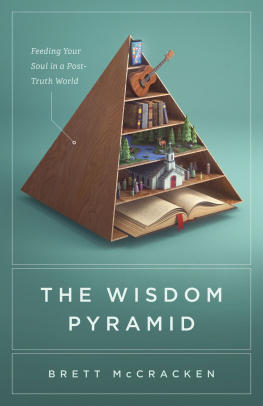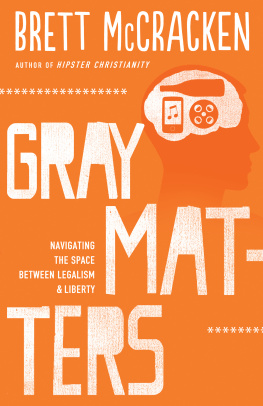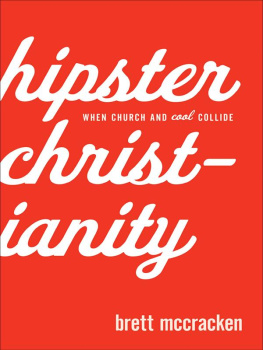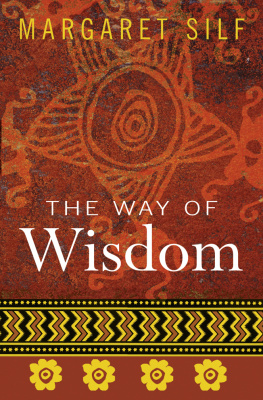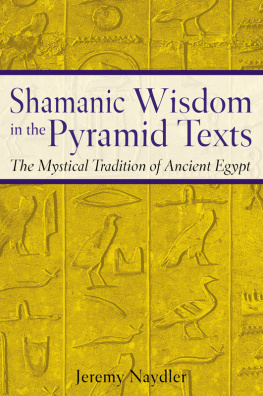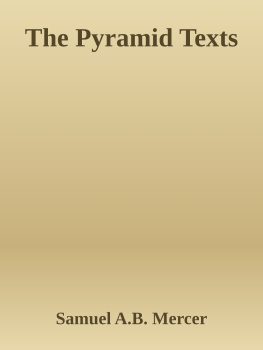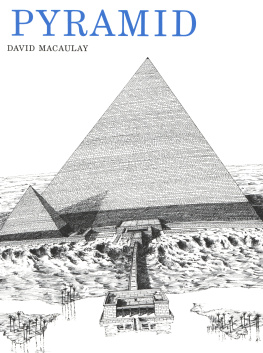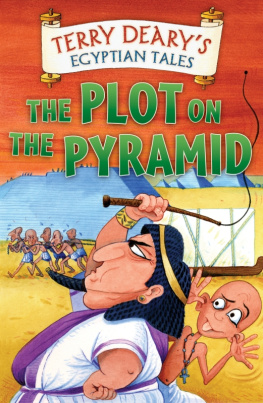Table of Contents
Landmarks
Chapter 2
Now just as we pick out and exaggerate the pleasure of eating to produce gluttony, so we pick out this natural pleasantness of change and twist it into a demand for absolute novelty. Screwtape (in C. S. Lewiss The Screwtape Letters )
Can you name five news events that happened last week? What about four people you texted yesterday? Or three things you watched on TV or a streaming site today? If youre like me, you struggle to recall the information and entertainment (or infotainment) you encountered in the last week, let alone in the last hour. This is because the overwhelming amount of content entering our brains today is also coming at an overwhelming pace .
Speed is paramount in the attention economy, as content providers want to keep consumers on their platforms without losing them due to any lag time. The speedier-than-ever information flow may be a boon for the state of digital business, but its a bust for the state of human wisdom.
Just as eating too much food makes us sick, eating too fast also makes us ill. Scarfing down food quickly may satiate our immediate hunger or need for on the go fuel, but it usually isnt great for our health. Similar things happen when we consume information too fast. It may seem like we are maximizing time and optimizing ourselvesefficiently consuming all manner of information at ever greater speedsbut the reality is we are eroding our capacity for wisdom.
The Horror of the Same Old Thing
Humans have always been fidgety creatures. The Internet and other technologies may be exacerbating this tendency, but they did not create it. Adam and Eves fidgety fingers couldnt help themselves in Eden, and ever since humans have struggled with contentment: we want more than what we have, and we want it now.
The devil delights in this tendency and preys on it.
Never has the devils work been easier in the area of novelty obsession. We check our smartphones upwards of two hundred times per day, filling every open space in life with whatever new things can be scrolled through: in line at Target, in our car at stop lights, at the dinner table, on the toilet. Our phone is usually the first thing we look at in the morning and the last thing we look at before bed.
Instead of being content with silence in the in between moments of life, our fidgety fingers cant help but reach for the phoneso we can do something, anything , to maximize the time. Indeed, the podcast craze coincides with the mobile-fueled frenzy to redeem every moment by listening to episodes while we clean the house or commute to work, or perhaps we listen to an audiobook while we go for a jog.
Theres no shortage of content clamoring for our attentionmuch of it is good contentand the pressure to watch this, read that, listen to this! can be hard to resist. But what is all this doing to our brains?
The research is not encouraging.
Our Changing Brains
In The Shallows , Nicholas Carr calls the Internet a technology of forgetfulness and describes how, thanks to the plasticity of our neural pathways, our brains are literally being rewired by digital distraction:
The more we use the Web, the more we train our brain to be distractedto process information very quickly and very efficiently but without sustained attention. That helps explain why many of us find it hard to concentrate even when were away from our computers. Our brains become adept at forgetting, inept at remembering.
Our rapid-fire toggling between spectaclesan episode of a Hulu show here, a Spotify album thereworks against wisdom in the moment , by eliminating any time for reflection or synthesis before the next thing beckons. But it also works against wisdom in the long term , as brain research is showing. Our overstimulated brains are becoming weaker, less critical, and more gullible at a time in history when we need them to be sharper than ever.
Quick Answers Instead of Slow Reflection
Google offers quick answers to any query we might have. But wisdom is not about getting to answers as fast as possible. Its more often about the journey, the bigger picture, the questions and complications along the way. Googles speedy delivery of answers is efficient, but its not as nutritious or enjoyable for our souls. Its like treating food only as fuel and forsaking the value of slowly making and enjoying a meal.
The speed and access of information has conditioned us to gather information impatiently. Skimming has become the default way people read. In this world, notes This has consequences for the brain, which may become more skillful at the strip-mining approach to fast-food information, but loses the ability to slowly stew over things that require synthesis and introspection. We move quickly from thing to thing but fail to see how the things connect. We can gather information faster than ever, but we are losing the ability to process it in a way that fully absorbs its nutrients.
Perceptual Presentism
Compounding the problem is what I call perceptual presentism, where reality is filtered to us in fleeting fragments of whats happening now , rather than through the filter of time and generational wisdom. Real-time tweets and Facebook posts that often discuss whatever the days trending debate is now dominate our attention. Status updates and disappear-in-a-day stories populate our perceptual field. Its called Insta gram for a reason, after all. Timeliness becomes an addictive toxin. Immediacy becomes an idol.
But this approach to time is not only narcissistic; its dangerous. It disconnects us from the wisdom of history and places undue mental emphasis on (and blind trust in) that which is least likely to produce wisdom: the untested now .
Todays technological landscape hasnt invented this sort of problematic presentism, but it has amplified it. Our existing human inclinations toward the latest and the trendiest are accelerated by the breakneck speed with which things come and go. This presentist orientation is particularly toxic (and all too common) in evangelical faith communities, where obsessions with relevance, an uncritical embrace of technology, and a disconnection from history leave many churches vulnerable to being molded more by the ephemeral spirit of the age than by the solid, time-tested wisdom of ages past.
Presentism is toxic not only because it rejects the resources of the past, but also because it has little discipline to stay on course for the future. Orientation around the new is by definition unstable, because the new quickly becomes old and pass. The presentist world burns through fads and ideas at an alarming pace. Among other things, this undermines the sorts of qualitiesgrit, perseverance, long-haul commitmentthat are essential to actually solving complex problems. Presentism leads us to be all in for some cause for a few months, only to lose interest when another cause grabs our attention. It turns us into fickle consumer slacktivists whose short bursts of passionfor a new weight loss scheme, a buzzy Netflix show, a hashtag campaign against some injusticemove the needle on nothing except the profit margin for the platforms that benefit from our now-ness.
The Business of Our Attention
Our novelty obsession fuels
But its not just Google and Facebook who are fighting for the lucrative commodity of our attention. Its every content producer. With more and more competition for eyeballs that have shorter and shorter attention spans, all media publishers must resort to desperate measures to win our coveted clicks. This is one reason journalism has seen better days. In todays microspectacle world, what wins in the attention game is often the hot take, the incendiary headline, the rashly reported story, the breaking news that isnt actually newsworthy. Cable news channels have far more air time to fill than there is real news to report, so they stack their schedules with talking head commentary, partisan debates, salacious scandals, celebrity divorces, and other infotainment to keep viewers glued to their screensat least until another breaking news alert or must see viral video draws the viewers attention elsewhere.

